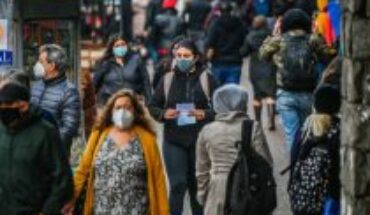Photos/Internet
World.-on 31 May each year, the World Health Organization (WHO) and its global partners celebrate world No Tobacco day. The annual campaign is an opportunity to raise awareness of the harmful and lethal effects of tobacco use and exposure to foreign tobacco smoke, and to deter tobacco use in any form.
World No Tobacco Day 2019 focuses on “tobacco and lung health.” The campaign will serve to raise awareness of the negative consequences for the lung health of people who have tobacco, ranging from cancer to chronic respiratory diseases and the fundamental role that the lungs play in the health and Well-being of all people.
The campaign also serves as a call to action, as it advocates effective policies to reduce tobacco use and involves multi-sector stakeholders in tobacco control activities.
World No Tobacco Day 2019 will focus on the many ways that exposure to tobacco affects the lung health of people around the world.
These are:
Lung cancer
Smoking tobacco is the main cause of lung cancer, responsible for more than two-thirds of lung cancer deaths worldwide. Exposure to tobacco smoke in the home or workplace also increases the risk of lung cancer. Quitting smoking may reduce the risk of lung cancer: after 10 years of quitting, the risk of lung cancer is reduced to about half that of a smoker.
Chronic respiratory Diseases
Smoking tobacco is the main cause of chronic obstructive pulmonary disease (COPD), a condition in which the accumulation of mucus with pus in the lungs causes painful coughing and terrible breathing difficulties. The risk of developing COPD is particularly high among people who start smoking at an early age, as tobacco smoke significantly delays pulmonary development. Tobacco also exacerbates asthma, which restricts activity and contributes to disability. Early quitting is the most effective treatment for delaying the progression of COPD and improving asthma symptoms.
Throughout life
Babies exposed in utero to tobacco smoke toxins, through maternal smoking or from maternal exposure to other smoke, often experience a decrease in lung growth and pulmonary function. Young children exposed to secondhand tobacco smoke are at risk of worsening of asthma, pneumonia and bronchitis, as well as frequent infections of the lower respiratory tract.
Globally, 165 000 children are estimated to die before their 5th birthday for lower respiratory infections caused by foreign tobacco smoke. Those living up to adulthood continue to suffer the health consequences of exposure to secondhand smoke, as frequent lower airway infections in early childhood significantly increase the risk of Develop COPD in adulthood.
Tuberculosis
Tuberculosis (TB) damages the lungs and reduces lung function, which is aggravated by smoking. Chemical components of tobacco smoke can trigger latent TB infections, with which about a quarter of the population is infected. Active TB, aggravated by the harmful effects of smoking on lung health, substantially increases the risk of disability and death from respiratory failure.
Air pollution
Tobacco smoke is a very dangerous form of indoor air pollution: it contains more than 7000 chemicals, 69 of which are known to cause cancer. Although smoke can be invisible and odorless, it can remain in the air for up to five hours, putting people at risk of developing lung cancer, chronic respiratory diseases and lung function reduction.
World No Tobacco Day campaign goals 2019
The most effective measure to improve lung health is to reduce tobacco use and exposure to other tobacco smoke. However, in some countries, knowledge among broad sectors of the general public and, in particular, among smokers about the consequences of smoking and exposure to secondhand smoke for human lung health is scarce. Despite strong evidence of tobacco damage to lung health, the potential for tobacco control to improve lung health remains underestimated.
The 2019 world No Tobacco Day campaign will help raise awareness about:
-The risks of smoking and exposure to other tobacco smoke;
-the particular dangers of smoking for lung health;
-The global lethality and morbidity burden of lung diseases caused by tobacco, including chronic respiratory diseases and lung cancer;
-New evidence on the relationship between smoking and tuberculosis deaths;
-the effects of exposure to secondhand smoke on the lung health of persons of all age groups;
-The importance of lung health for achieving health and well-being at the general level;
-Actions and feasible measures that key recipients, including governments and public opinion, can take to reduce the risks posed by tobacco for lung health.
The cross-cutting theme of tobacco and lung health has implications for other global processes, such as international efforts to control non-communicable diseases (NCDS), TB and air pollution to promote health. It is an opportunity to engage stakeholders in all sectors and empower countries to strengthen the application of the MPOWER-proven tobacco control measures contained in the WHO Framework Convention for the Control of Ta Baco (WHO FCTC).
Lung health is not simply achieved by the absence of disease, and tobacco smoke has an important impact on the lung health of smokers and non-smokers around the world.
To achieve the goal of sustainable Development Goals (ODS) to reduce by one-third the premature mortality by NCD for 2030, tobacco control should be a priority for governments and communities around the world. Today, the world is not well on track to achieve this goal.
Countries must respond to the tobacco epidemic through the full implementation of the WHO FCTC and the adoption of MPOWER measures at the highest level, implying the formulation, implementation and enforcement of the most effective tobacco control policies Aimed at reducing the demand for tobacco.
Parents and other members of the community should also take steps to promote their own health and that of their children protecting from the damage caused by tobacco.
Source: WHO
translated from Spanish: May 31st, World No Tobacco Day
May 31, 2019 |





